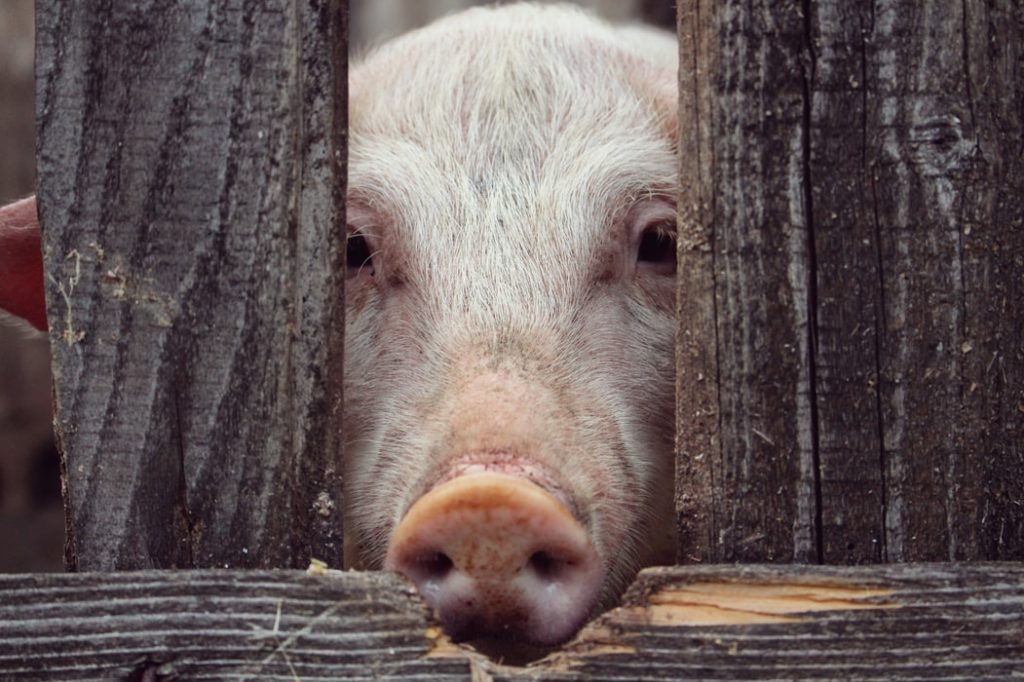
The Yorkshire pig has several names. Some call it a Large White Pig, while others refer to it as English Large White. In the United States and Canada, the pig is referred to as a Large Yorkshire or an Improved Large Yorkshire. The Yorkshire pig is the first choice for people interested in commercial farming.
Yorkshire Pig Origin
A farm without a pig pen is incomplete. The Yorkshire pig was first discovered in 1884 by the National Pig Breeder’s Association in the UK. From being a pet, the breed has evolved to produce good quality meat. It is popular for its lean meat in the United States. Joseph Tuley presented the Yorkshire breed to an animal exhibition in the UK.
The Yorkshire pig was first imported to Ohio. Today, it is bred across most of the states. From Indiana to Nebraska. The large Yorkshires are prominent in the United States and are popular. An American Yorkshire club was established in 1893 in Minnesota.
Large Yorkshire Pig
Large Yorkshires lead the path for bacon production. They are one of the largest of all the swine breeds. These Yorkshires prefer being fed rather than grazing. Black hair or blue and black spots on the Yorkshire’s must be minimal, or nonexistent.
Yorkshire Pig Size- At birth, a piglet is around 1 kg. Within two months, they become heavier. A large Yorkshire boar (male) weighs between 300 and 400 kgs. While the Yorkshire sow (female) weighs between 250 and 350 kgs.
Yorkshire Pig Life Span – Yorkshire pigs can live for more than 10 years. But, because of the high demand for pork, they never live out their full life span. It is within 6 months that most of the Yorkshire pigs are taken away from the pen.
Color– The breed is predominantly pink in color.
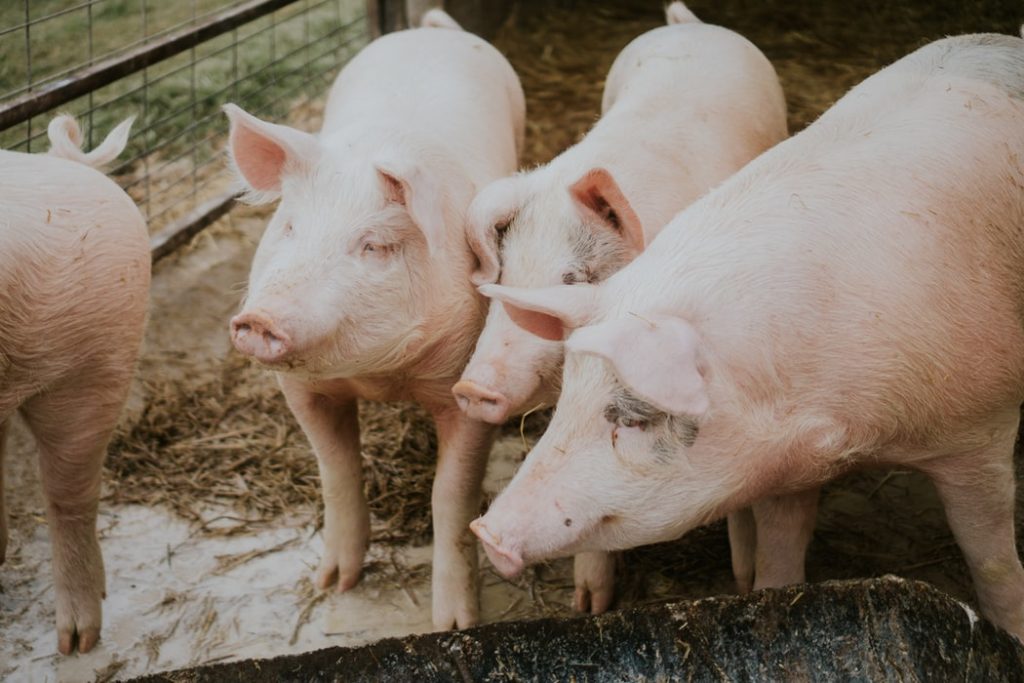
Characteristics of Yorkshire Pigs
There are three main types of Yorkshires. Large, Medium and small Yorkshires. The snout helps them look for food. Sow- Broad shoulders, and a long torso. Upright ears, semi-erect ears. Bellies do not sag. They have broad foreheads. They mature at 12 months of age.
Boar: Yorkshire boars have a short neck. Soft pink leather. They have broad and plump shoulders.
Behavior: Friendly with humans. Yorkshires adapt to the new environment quickly.
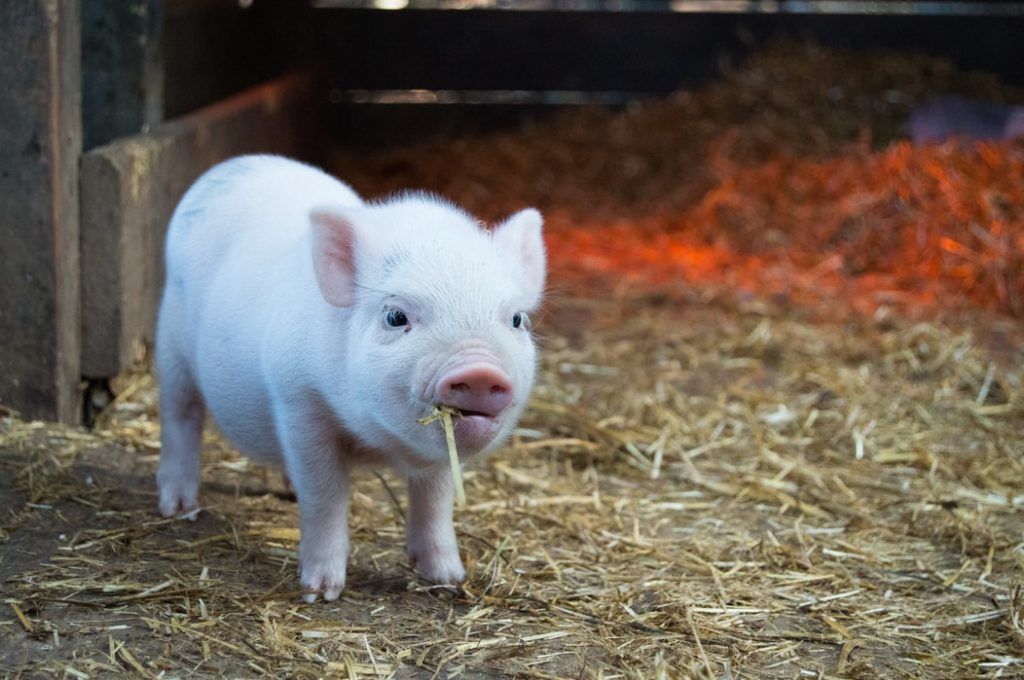
Diseases Affecting Yorkshire Pigs
Yorkshires are resistant to several diseases. The breed may suffer from a lack of vitamins. Especially B1, and vitamin D. These deficiencies are beriberi and rickets. Right supplements will help overcome these deficiencies. They swell up the calves in early spring.
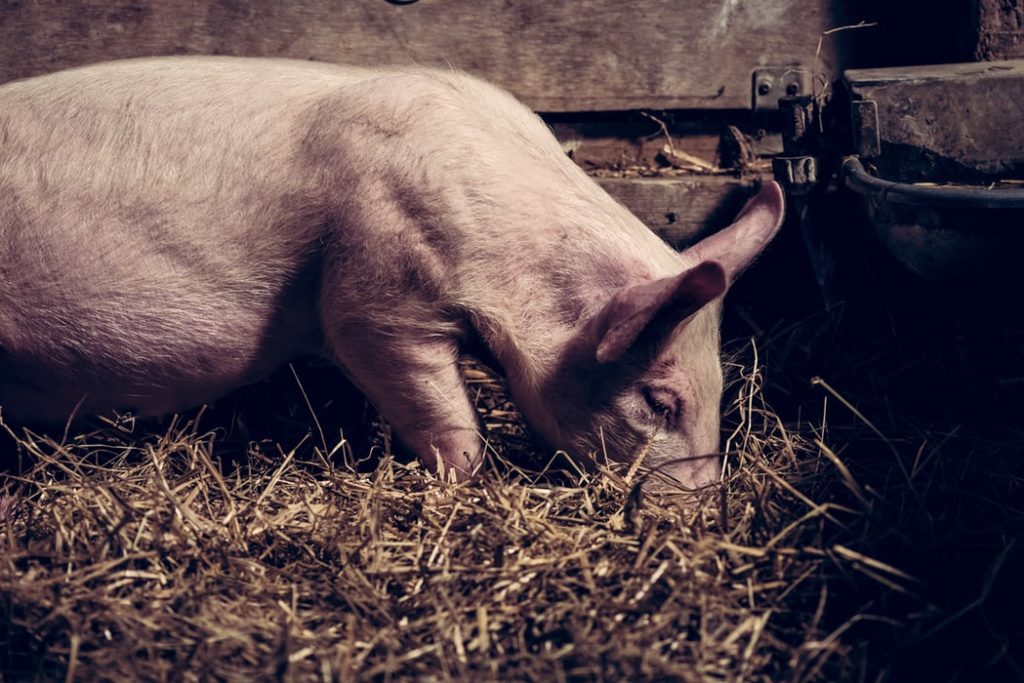
Piglets, however, are prone to Erysipelas. This can cause rashes and high fever. Overweight Yorkshires that is 650 kilos and above, can have several health issues. Parasite infections and Respiratory illnesses may also be witnessed among Yorkshire pigs. It depends on the environment and the pen they are in.
Diet of Yorkshire Pigs
Yorkshires are omnivores. That is, they eat plants as well as animals.
Weather Conditions for Yorkshire Pigs: These Yorkshires adapt to different environments easily. They tolerate the change in weather conditions because of their hardy nature
Also read – 9 cool exotic pets to own safely
Yorkshire Pig Behavior: The American Yorkshire pigs love the outdoors. Yet, they have a calm and adjusting nature. The take to their pens without hesitation. Because they stay outdoors, the quality of meat is exceptional. Friendly and affectionate pigs.
Fertility Rate: Very high fertility rate. A Yorkshire pig can give birth to up to 13 piglets at once. Sows that are in good health, give birth at least twice a year.
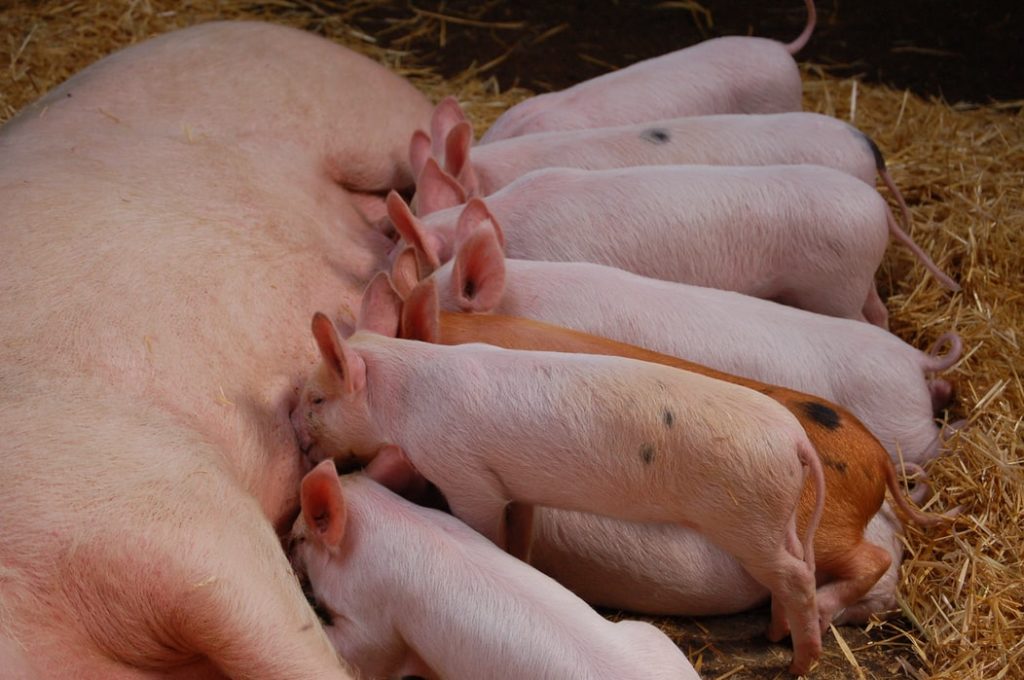
Life Span of Yorkshire Pigs
The life span ranges from 7 to 12 years of age.
Yorkshire Pig Facts
– Yorkshire pigs are very intelligent animals.
– Pigs have small lungs compared to humans.
– Yorkshire pigs, contrary to other breeds are clean animals. Their litter area is far away from where they rest.
– Pigs were domesticated before cows. Today, some even prefer having them as pets.
– The feet of the Yorkshire pigs are trotters. For some, it is a delicacy. But, the Yorkshire pig’s feet have four toes. Two outer ones are for balance. The toes point downwards, the pigs tend to walk only on two of them. The two middles toes help them go from point A to point B. They have tougher feet at the end, known as hooves.
– The Yorkshire breed is known as “Mother breed.” This is because they give birth to many piglets at once.
– Yorkshire pigs chew food. Their digestive system is like that of homo sapiens.
– Adult Yorkshire pigs have a total of 44 teeth. When they are young, they lose their baby teeth. Their teeth have an enamel coating similar to that of humans.
– Pigs can consume a lot of water. They can easily drink up to 14 gallons of water a day.
– The scientific name for a pig is Sus scrofa.
– Yorkshire pigs are very muscular.
– Yorkshire pigs are also used to upgrade local breeds via cross-breeding.
– This breed of pigs tends to get stressed easily.
Yorkshire Cross Pig
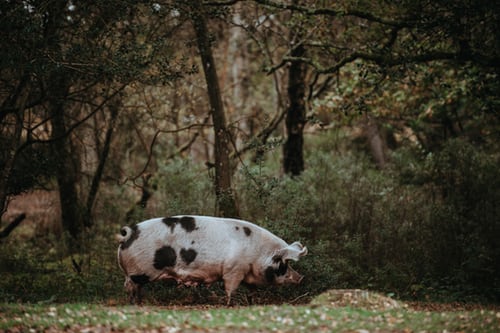
Crossbreeding leads to a new generation of pigs with heterosis. This refers to the piglets having an enhanced combination of genes. From the paternal and maternal side of the crossbreed. Crossbreds have a higher survival rate and tend to grow much faster.
Yorkshires are common in crossbreeding for their litter size and maternal traits. Another breed might be selected for its growth rate or carcass traits. Yorkshire Crossbreeding can be between two breeds. But, it can also be between four different breeds. The backcrossing system is the simplest form of cross-breeding. It consists only of two different breeds.
For example, Chester White sows give the Yorkshire sows a run for their money in litter size. Chester White and Yorkshire pigs have a 21-day litter when crossbred. This is mainly because of the high conception rate. Before deciding a cross breeding system, analysis of different systems is a must. Farmers prefer using at least one purebred in the crossbreeding system. Each breed’s traits play a major factor behind selecting the opposite mate.
There are over 2 billion Yorkshire pigs in the world today. They continue to grow, because of their immense litter size and motherly sows.
Some frequently asked questions about Yorkshire pig
-
What is the average size of a Yorkshire pig?
On average, Yorkshire pigs reach a weight of 250 to 300 kilograms (550 to 660 pounds) when fully grown. -
What is the lifespan of a Yorkshire pig?
The lifespan of a Yorkshire pig ranges from 8 to 12 years, depending on its living conditions and overall health. -
What is the temperament of Yorkshire pigs?
Yorkshire pigs are known for their calm and gentle disposition, which makes them easy to handle and manage. -
What is the typical diet of a Yorkshire pig?
The typical diet of a Yorkshire pig consists of a balanced combination of grains, vegetables, fruits, and protein sources like soybean meal. -
Are Yorkshire pigs suitable for small-scale farming?
Yorkshire pigs can be suitable for small-scale farming due to their manageable size and ease of handling. -
How much space do Yorkshire pigs require?
Yorkshire pigs require adequate space for their size, with recommended guidelines of at least 10 square meters (108 square feet) per pig. -
What are the common health issues or diseases that affect Yorkshire pigs?
Common health issues in Yorkshire pigs include respiratory diseases, parasites, and nutritional deficiencies, which can be managed through proper husbandry practices and veterinary care. -
How do you care for Yorkshire piglets?
Yorkshire piglets require a warm, clean environment, appropriate nutrition, and socialization to ensure their healthy growth and development.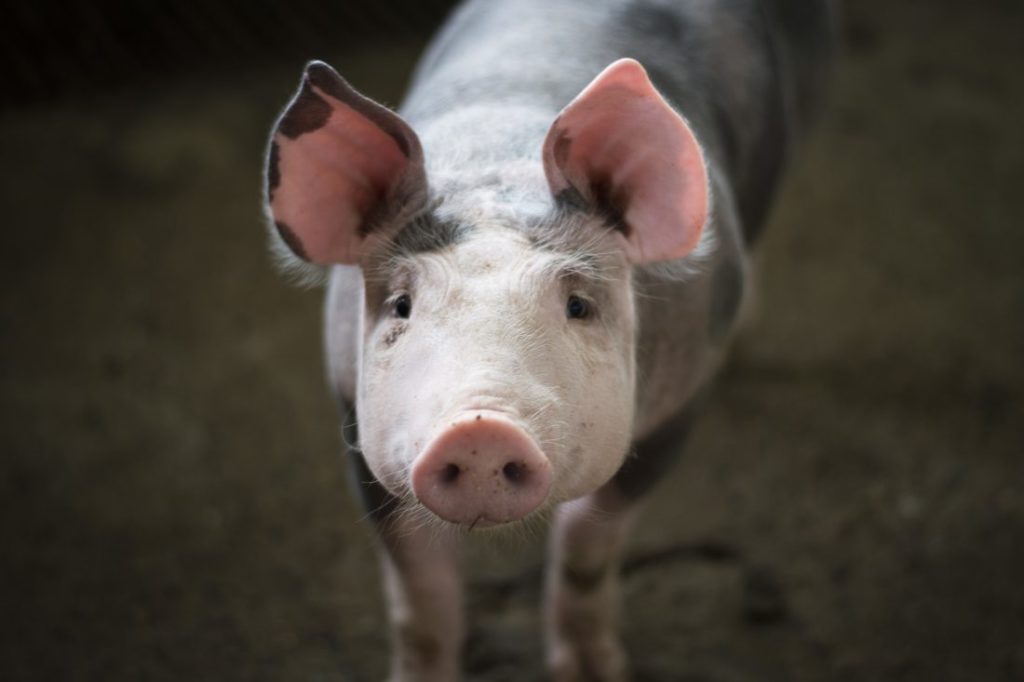
-
Can Yorkshire pigs be raised for meat production?
Yes, Yorkshire pigs are primarily raised for meat production due to their desirable meat quality and efficient growth rate. -
What is the meat quality of Yorkshire pigs?
The meat of Yorkshire pigs is known for its tenderness, juiciness, and marbling, making it highly sought after by consumers and chefs. -
Are Yorkshire pigs good mothers?
Yes, Yorkshire sows are generally good mothers, displaying strong maternal instincts and successfully raising large litters of piglets. -
How many piglets can a Yorkshire sow typically have?
A Yorkshire sow can typically have a litter size ranging from 10 to 14 piglets, although larger litters are possible. -
What is the average growth rate of Yorkshire pigs?
Yorkshire pigs have an average daily weight gain of approximately 0.9 to 1.1 kilograms (2 to 2.5 pounds) during the growing phase. -
How do you train Yorkshire pigs?
Yorkshire pigs can be trained using positive reinforcement techniques, such as offering rewards or treats for desired behaviors. -
Can Yorkshire pigs be kept as pets?
While it is possible to keep Yorkshire pigs as pets, their large size and specific care requirements make them more suitable for commercial farming rather than as household pets. -
What are the advantages of raising Yorkshire pigs compared to other pig breeds?
Some advantages of raising Yorkshire pigs include their high growth rate, efficient feed conversion, and adaptability to various climates. -
Are Yorkshire pigs good for crossbreeding?
Yes, Yorkshire pigs are often used for crossbreeding due to their desirable traits, such as growth rate, meat quality, and maternal instincts. -
How do you choose a healthy Yorkshire pig for purchase?
When purchasing a Yorkshire pig, look for signs of good health, such as bright eyes, a shiny coat, and alertness. Also, check for any signs of disease or injury. -
What are the recommended housing requirements for Yorkshire pigs?
Yorkshire pigs require a well-ventilated and clean housing with sufficient space, proper flooring, and access to fresh water and feed. -
What kind of fencing is suitable for containing Yorkshire pigs?
Secure and sturdy fencing, such as welded wire mesh or electric fencing, is recommended to contain Yorkshire pigs and prevent escape.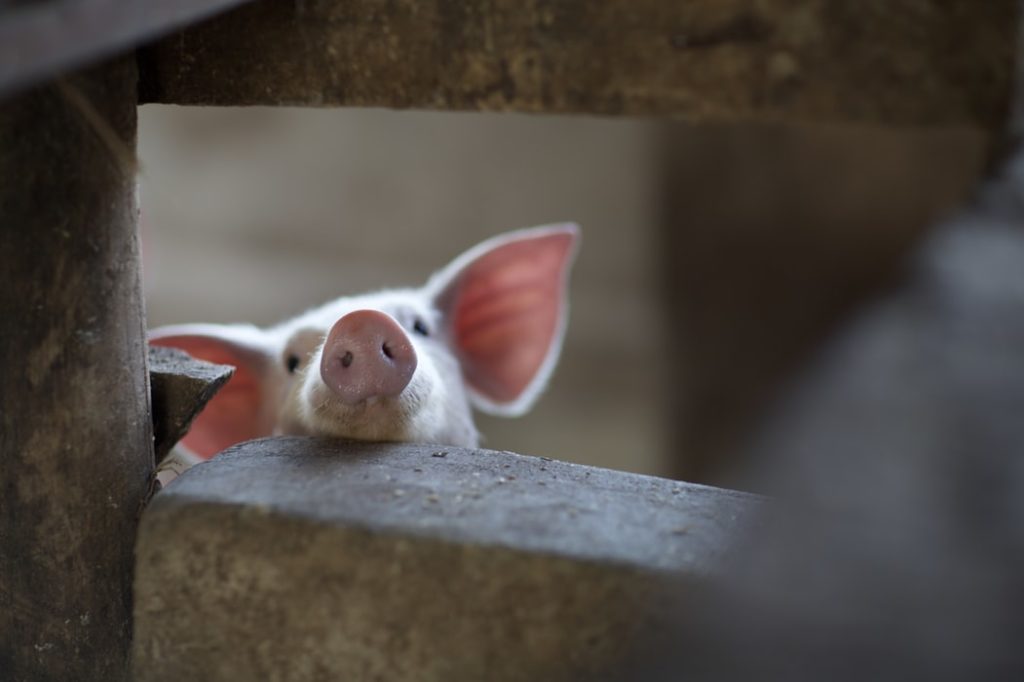
-
How do you prevent or manage common pig diseases in Yorkshire pigs?
Prevention and management of common pig diseases in Yorkshire pigs involve practicing good biosecurity measures, providing a nutritious diet, maintaining clean housing, and regular veterinary care. -
What is the gestation period for Yorkshire sows?
The gestation period for Yorkshire sows is around 114 days, or approximately 3 months, 3 weeks, and 3 days. -
What is the recommended breeding age for Yorkshire pigs?
The recommended breeding age for Yorkshire gilts (young female pigs) is around 8 to 10 months, once they have reached sufficient size and maturity. -
Are Yorkshire pigs prone to obesity?
Yorkshire pigs have a tendency to gain weight easily, so proper feeding management is crucial to prevent obesity and related health issues. -
How much exercise do Yorkshire pigs need?
Yorkshire pigs require regular exercise to maintain their overall health and well-being. Providing them with ample space to move and explore is important. -
What are the main challenges of raising Yorkshire pigs?
Common challenges of raising Yorkshire pigs include managing their size and weight, ensuring proper nutrition, and preventing health issues associated with intensive farming practices. -
Are Yorkshire pigs suitable for organic farming practices?
Yes, Yorkshire pigs can be raised using organic farming practices by providing them with organic feed, access to outdoor areas, and avoiding the use of antibiotics or growth-promoting hormones.
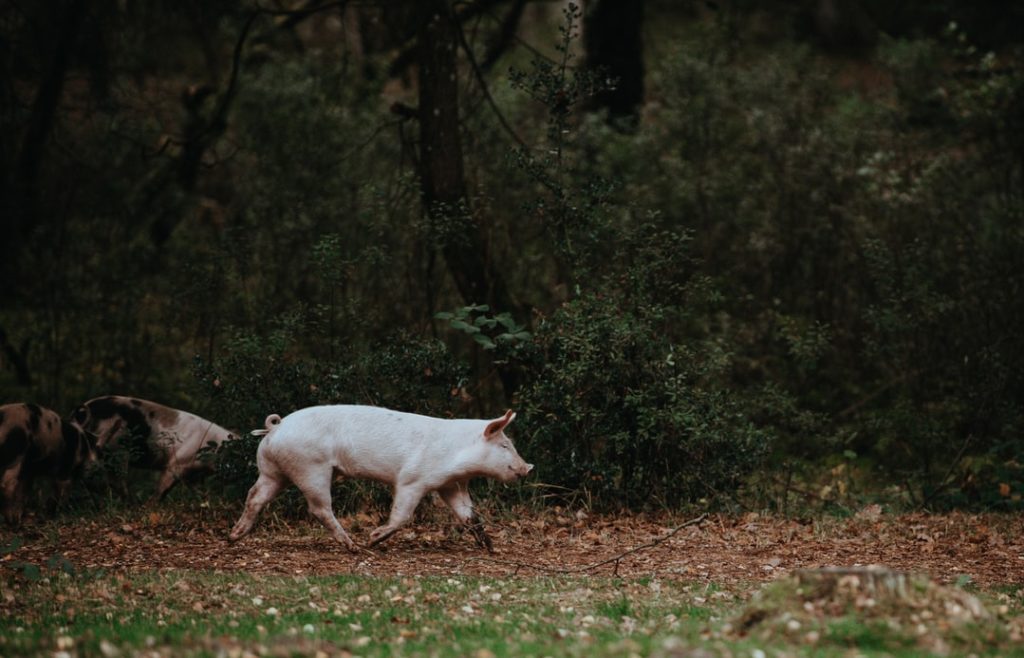
In conclusion, Yorkshire pigs are a versatile and highly regarded breed in the world of pig farming. Their impressive size, gentle nature, and superior meat quality make them a popular choice for both commercial and small-scale farmers.
By understanding their characteristics, providing proper care, and leveraging their desirable traits, Yorkshire pig enthusiasts can enjoy a rewarding experience in raising these remarkable animals. Whether you’re interested in meat production or simply fascinated by these magnificent creatures, Yorkshire pigs offer a valuable addition to any farm or agricultural endeavor.
